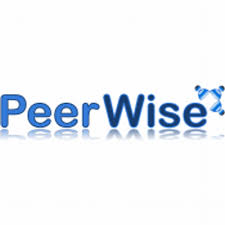|
According to the authors, the Contributing-Student Pedagogy (CSP) “is based on the philosophy that students learn best when they are actively engaged in helping to create their own learning resources, and draws on constructivist theories of learning.”
Concretely, CSP activities will often involve “students creating assessments for their peers, sharing solutions and feedback with each other, and sometimes reviewing the work of their classmates.” PeerWise is precisely a piece of technology that allows students to create and share formative self-assessments. Contrary to summative assessments, which evaluate learning at the end of a cycle, “formative assessments are primarily designed to aid the learning process. They are typically used to indicate shortcomings in the knowledge of the student in order to guide subsequent learning.” They can also “give feedback on how effective the student’s learning strategies have been, and can motivate the student to learn more in the future.” With PeerWise, students can “create, share, and answer multiple-choice questions. When a question is created, the author of the question designates which of the potential answers is correct and provides a written explanation to act as feedback. Once the question has been attempted, the answerer receives this feedback and then has the opportunity to rate the question based on its difficulty and quality, as well as provide general comments. These comments can form the basis of an online discussion where the veracity of the question can be debated with other students, including the author of the question. This allows useful questions to be identified and permits those questions whose answers are potentially incorrect or ambiguous to be flagged. The correct answer can then be provided by other students.” To test the effectiveness of CSP, the researchers introduced it to 60% of a sample of 647 second-year psychology Australian students. Confirming their hypothesis, the experimental group was found to have significantly better test results on the final MCQ exam (about 11%.) The effect was less pronounced on earlier essays (around 5.5%). Moreover, of the 387 students in the PeerWise group, only 28 wrote questions, and 43 commented. That being said, all students answered at least one question, and each student answered 92 questions on average. Source: Howe et alia (2018), “PeerWise: Evaluating the Effectiveness of a Web-Based Learning Aid in a Second-Year Psychology Subject”, Psychology Learning & Teaching, 17:2, pp. 166–176.
0 Comments
Your comment will be posted after it is approved.
Leave a Reply. |
|
Proudly powered by Weebly

